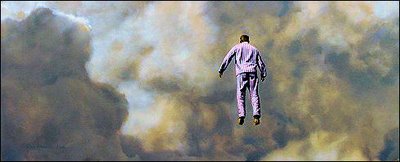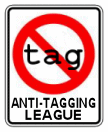The Gospel of the Universal Messiah
 I first began to question the existence of God as an adolescent. My questions started small, but grew bigger and more complex over time. Why was it that no matter how often or fervently I prayed, nothing seemed to happen? Even though I deeply believed, how come I never felt His presence as I'd been taught in Sunday school I would? Why would the benevolent God I'd learned about allow so much suffering and hate in a world he created and supposedly loved? Why did nearly every religion claim to have the inside track on THE God and that unless you believed in THEIR God, you'd never get into heaven? The questions were endless and so was my search for answers.
I first began to question the existence of God as an adolescent. My questions started small, but grew bigger and more complex over time. Why was it that no matter how often or fervently I prayed, nothing seemed to happen? Even though I deeply believed, how come I never felt His presence as I'd been taught in Sunday school I would? Why would the benevolent God I'd learned about allow so much suffering and hate in a world he created and supposedly loved? Why did nearly every religion claim to have the inside track on THE God and that unless you believed in THEIR God, you'd never get into heaven? The questions were endless and so was my search for answers.As each question arose, I studied what the answer might be. Along the way, I read quite a few religious texts - the entire Bible, along with portions of the Torah, Koran, and several others. While I found much good in them and plenty of consistency between the religions about what the answers should be, I almost never found an answer that jibed with my own observations of the world.
At first, I tried squaring what I saw with what the texts laid out. I found that by taking a more universal and amorphous approach I could stretch almost everything I read to somehow cover almost every question I had.
Around that time, I developed a conceptual God I called the Universal Messiah. My messiah was always benevolent. He didn't allow suffering for anyone, believer or not. Instead of a jealous God who severely punished those who disagreed or believed differently, I wanted to see one who could tolerate discussion that would help people grow and love one another. My messiah listened to prayers and answered them in a clear voice that offered wise advice. My messiah accepted respect rather than commanded it. He was not a God to be feared, but one impossible not to love.
Then, a thought occurred to me. A thought that produced a schism so profound, it led me to not believing at all.
I had managed to create a God in my own image and if I could do that, it seemed to me that people much cleverer than me could do it too. I began to look at the cryptic messages in the religious tomes and realized that's why the stories were so metaphorical. They were created by men, precisely because they could apply to any situation. I began to believe that perhaps the Bible wasn't direct from the hand of God, but something concocted by man to help people deal with the harsh realities of life. A life that wasn't powered by a God, but one that was fallible and sometimes broken.
Suddenly, I saw God as a useful construct to keep people overburdened by a harsh world on their feet. Society and the person needed to keep shuffling through their life, because if they didn't it meant the death of both. Holding out an eternal reward was the carrot on the end of the theological stick. Something to give people hope in a frequently hopeless world.
Finally, I gravitated to atheism, although a benevolent sort of atheism that's pretty rare.
I allow for the prospect that I may be wrong. I don't think so, but it's happened before. So if I am wrong, I'd like to know that all the people who believe do get their eternal reward. I'd also like to believe that all the evil people who used God as a front man rather than a savior get their just "reward" too.
As for me and my soul, I suppose that will be between God and me. I'll lay out my case for worthiness and he'll judge whether I met the requirements. If I get sent down to the firey pits of hell because I didn't believe, at least I'll be able to go with a clean conscience. I'll know that I used my brain, I used my heart, I did my best, and I did it the hard way - without a God to help me through.
I think I can live...make that die, with that.
Truth Told by Omnipotent Poobah, Friday, December 22, 2006








